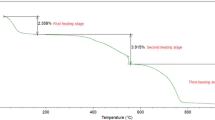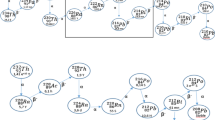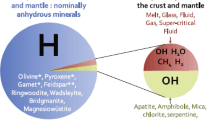Abstract
THE hard-water effect is a recognized source of error in radiocarbon dating. It causes ages to be over-assessed and arises when the material to be dated, such as mollusc shell or plant, synthesizes its skeleton under water and so uses bicarbonate derived in part from old, inert sources. It is usually stated that the maximum possible error is equivalent to the half-life of 14C, 5,570 yr (Libby scale), but it rarely amounts to as much as this. Moreover, in an isolated dating it is not only impossible to evaluate, but even to know whether there is any over-estimation, but if the sample consists of tree wood, or the leaves, twigs or seeds of wholly terrestrial plants, then it can be assumed that no hard-water error is present.
Similar content being viewed by others
References
Iversen, J., Medd. Dansk. Geol. Forening, 10, 130 (1942).
Tauber, H., Radiocarbon, 8, 213 (1966).
Author information
Authors and Affiliations
Rights and permissions
About this article
Cite this article
SHOTTON, F. An Example of Hard-Water Error in Radiocarbon Dating of Vegetable Matter. Nature 240, 460–461 (1972). https://doi.org/10.1038/240460a0
Received:
Issue Date:
DOI: https://doi.org/10.1038/240460a0
- Springer Nature Limited
This article is cited by
-
Palaeolimnological evidence for the independent evolution of neighbouring terminal lakes, the Murray Darling Basin, Australia
Hydrobiologia (2007)
-
Chronology of Holocene lacustrine sediments in Co Ngoin, central Tibetan Plateau
Science in China Series D: Earth Sciences (2006)
-
Lateglacial and early Flandrian chronology of the Isle of Mull, Scotland
Nature (1982)
-
Radiocarbon dating and stratigraphic resolution in Welsh lateglacial chronology
Nature (1981)
-
Radiocarbon dates and deglaciation of Rannoch Moor, Scotland
Nature (1976)





